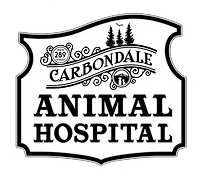Allergies can present with a multitude of clinical signs in companion animals. Most often, allergies present as skin irritation or infection, pruritus (itching), and/or gastrointestinal upset (vomiting, diarrhea, flatulence).
In dogs, we most often see repeated ear infections, licking of paws, chewing at the tail or haircoat, irritated skin in the inguinal area, red eyes, and gastrointestinal signs.
In cats, we most often see gastrointestinal signs, alopecia (hair loss), or irritated skin on the abdomen. It can be challenging to determine which allergy, food or environmental, or a combination, is contributing most to the clinical signs you are seeing in your pet.
There are widely available allergy tests from blood, saliva, or hair, but we have found their clinical relevance to be inconsistent at best. These tests can help guide owners on what food ingredients or allergens to avoid. We have found veterinary diet trials to be the most diagnostic and rewarding in allergy treatment.
Depending on your pet’s clinical signs, we may recommend other medications to assist in flare-ups or current infections, but in most cases, allergies are treatable and even curable.

